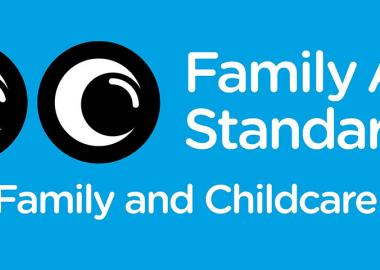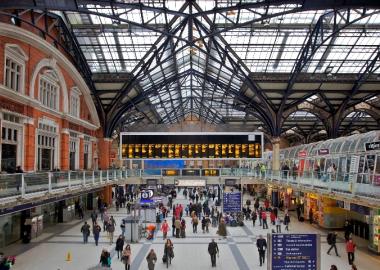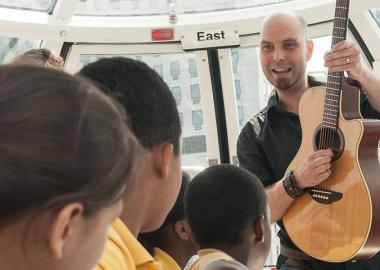Many of you are increasingly facing problems with your local authorities on child licensing. In recognition of the fact that interpretation of the law is so different between councils, the National Network for Children in Employment and Entertainment (NNCEE) has now published guidance which should hopefully lead to a little more consistency.
There are three reasons why this is important:
- If you are a group that has a membership including children or performs with children from several local authorities, then having two or more different types of requirements to deal with could just about tip a volunteer trying to arrange this over the edge…
- Current inconsistency means some children will find it easier than others to take part in musical activity, and have more opportunities open to them, depending on their local authority’s attitude, leading to an inequality of access
- We at Making Music have been frustrated by not being able to give you support and guidance, except to point you at your own local authority’s website.
But there is a big proviso: this is not binding regulation, it is just guidance. Unfortunately, it remains entirely at the discretion of each local authority how they interpret the underlying legislation and therefore whether or not they will require you to apply for a licence for a particular event and what conditions they impose.
Note re. Scotland and Wales: whilst there is separate legislation and regulation in those nations, according to the NNCEE it is broadly similar and therefore recommended best practice in England and Northern Ireland will still be relevant.
I’ve also been given some practical, though unofficial advice: if in doubt, don’t contact your local authority with your question. They no longer have the capacity to respond (lack of personnel) and if confronted with the choice and the need to take a decision will generally err on the side of caution, thus probably making your life more complicated. Contact us or any other relevant organisation (e.g. schools/hubs involved) first for advice, rather than your council.
What is helpful about this guidance, though, is that you can work your way through it as an average person and get some sense of what you do or don’t have to do – and that’s progress compared to the pre-guide situation.
The NNCEE guide also references two other documents you may want to look at:
- the Department of Education’s advice, especially pages 7-11
- the new legislation: The Children (Performances and Activities) (England) Regulations 2014
In the NNCEE’s guide you might find pages 7-12, 34-35, 50-54 and 71 particularly useful.
Definition of children: under 16s or those who have turned 16 but are still of compulsory school age (i.e. until end of the school year during which they turned 16).
Do you need a licence?
- Is the child paid, or someone paid in respect of the child? YES – you probably need a licence. NO – you may be exempt.
- Are you charging for tickets to the concert? YES – you probably need a licence. NO – you may be exempt.
- Is there alcohol for sale at the concert/is it a licensed building (e.g. theatre)? YES – you probably need a licence (not to be confused with alcohol license). NO – you may be exempt.
- If you’ve answered NO to all three, it is very likely that you do not need a licence at all.
There are two other exemptions which may be useful or relevant:
- If the event is arranged by a school (note: that does not include a music service or other non-statutory teaching establishment), but see examples in the guide
- If the young person has not performed for more than three days in the previous six months, the so-called 4-day-rule. Of course they may not have performed with or for you in the last six months, but with or for someone else. If relying on this exemption, make sure you get a signed statement from a parent confirming this is the case.
If you think you do need a licence, what may actually be more appropriate is a Body Of Persons Approval (BOPA). This approves an organisation, usually for a year, for an amount of performances in that year, for all the children involved.
- This will involve the local authority looking at you in quite close detail and in particular you will be expected to have a child protection policy in place, safeguarding procedures and a nominated responsible person (also all required if you apply for a license). Making Music has resources to help you with these, as well as offering DBS (Disclosure and Barring Service) checks affordably to members.
- A BOPA does mean you don’t have to apply for each child separately, and it will include children from other local authorities to perform with you in your local authority.
- It also means you do not necessarily need council approved chaperones. It doesn’t mean the council won’t ask you about chaperoning arrangements and they might well object to the ones you are proposing and make it a condition of your BOPA that you do use approved chaperones. But if you have a well-thought out plan, then they might be happy with that.
- Problems you could encounter with a BOPA: if you want to go and perform in an area outside your own local authority, your BOPA then won’t be valid and you can’t apply for one in the other local authority because you don’t live there…
- Also, a BOPA does not mean the children have permission to miss school – whereas the granting of a licence does. However, if the child attends an academy or free school or independent school, then giving permission for absence from school is at the discretion of the headteacher; whereas in a state-maintained school you only have the right to time off if you have a licence.
If you do need to apply for a licence, make sure you do so as early as possible, but definitely more than 21 days before the performance you need it for (this also applies to the BOPA).
- If children perform under a licence, you will need council-approved chaperones unless they are under the direct supervision of a parent or teacher from their school.
- A licence may impose other conditions, for instance with regard to the rehearsal or performance space (washing/toilet/changing facilities) and travel arrangements.
- There is now a standard application form for a licence which should be accepted by all local authorities in England and Wales (included in the guide).
- Licences are always issued by the local authority the child lives in, except if you are taking a child abroad, when it is issued by a magistrate.
- If you are collaborating with another organisation (e.g. several music groups coming together for a performance), then be sure to make a clear decision as to who is in overall charge of the event – that will be the organisation which needs to apply for a licence for the children. The safeguarding thinking behind this is that the licence should only be issued to the organisation which can actually affect the conditions under which children rehearse and perform, and that should be the organisation overall in charge. In any case you will need to decide this for other reasons, e.g. for insurance purposes.
Whilst the child licensing regime can seem overkill for the kind of activity Making Music members undertake, you need to bear in mind that the local authority is responsible for the children in its area and their safeguarding and education, so these are the principles guiding their licensing decisions, principles, of course, that none of us would disagree with.
However, there is some specific lobbying being undertaken at the moment by the Music Education Council, of which Making Music is a member, with the Department of Education to persuade the government to remove amateur music activity for children from the licensing regime altogether, on the grounds that it is education, firstly, and secondly arguing that if sport is exempt (amateur, not paid sport), then why not music?
Making Music has submitted three specific case studies towards this lobbying activity so far and if you have examples of how the requirement for child licenses has affected what you’re able to do or what opportunities children have, then please email this information to Barbara@makingmusic.org.uk.
We hope you find this Making Music resource useful. If you have any comments or suggestions about the guidance please contact us. Whilst every effort is made to ensure that the content of this guidance is accurate and up to date, Making Music do not warrant, nor accept any liability or responsibility for the completeness or accuracy of the content, or for any loss which may arise from reliance on the information contained in it.










